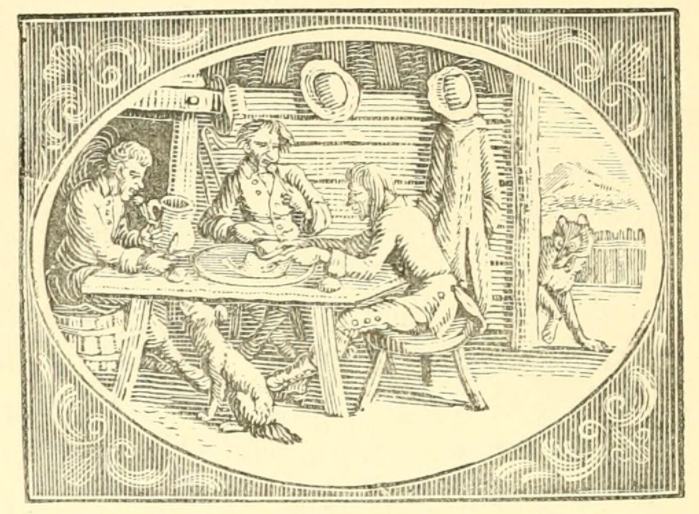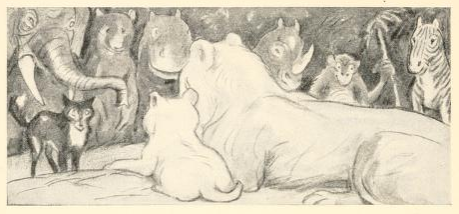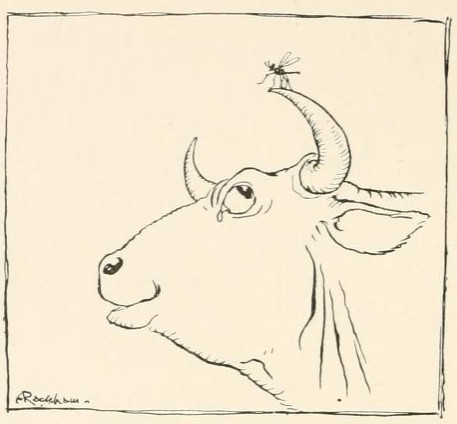For the New Year, I'm reviving a new project here. As you may have noticed, this blog was originally intended for materials from old Greek textbooks for beginning students. I started that project because there is a lack of easy Greek to read. Most contemporary Greek textbooks rush into presenting students with really hard classical authors instead of easy-to-read stories. In the past, however, there was not such a rush. Students began learning Greek at a younger age, which meant they had time to develop their skills over many years, unlike the breakneck pace of college Greek classes nowadays, where students might spend just a few semesters studying Greek.
I got happily sidetracked into the Greek proverb project, but in 2025 I want to get back to the original project of collecting easy-to-read Greek stories from the old textbooks, alternating story posts with proverb posts. So, each week there will be story posts for Monday, Wednesday, and Friday, and proverb posts on Tuesday, Thursday, and Saturday, with a round-up on Sundays.
I'll start with Aesop's fables, then move on to the jokes from the Philogelos, and then do some mythology. The Aesop's fables are very short, so I'll be able to include 3 of them in each post.
So, below you will find the first 3 Aesop's fables. These happen to come from Anthon's Greek Reader, published in 1844, which has notes for each story and a complete dictionary in the back of the book. You can use the linked titles below to access the notes for each story.
As you'll see, I present the story in normal Greek prose, then segmented, and then with an interwoven English translation. I hope this will make it easy to use the stories on your own, and without too much recourse to a dictionary, unless of course you are curious about the etymology or the specific meaning of a particular Greek word beyond what I've suggested in my translation. Enjoy!
Λύκος, ἰδὼν ποιμένας ἐσθίοντας ἐν σκηνῇ πρόβατον, ἐγγὺς προσελθὼν, ἡλίκος ἔφη ἂν ἦν θόρυβος, εἰ ἐγὼ τοῦτο ἐποίουν.
Λύκος
ἰδὼν ποιμένας
ἐσθίοντας ἐν σκηνῇ πρόβατον,
ἐγγὺς προσελθὼν
ἡλίκος (ἔφη) ἂν ἦν θόρυβος,
εἰ ἐγὼ τοῦτο ἐποίουν.
Λύκος ... a wolf,
ἰδὼν ποιμένας ... having seen shepherds
ἐν σκηνῇ ... in their tent
ἐσθίοντας πρόβατον ... eating a sheep,
προσελθὼν ἐγγὺς ... having drawn near,
ἔφη ... said,
"ἡλίκος θόρυβος ... how great an uproar
ἂν ἦν ... there would be
εἰ ἐγὼ ἐποίουν τοῦτο ... if I did that."

Λέαινα, ὀνειδιζομένη ὑπὸ ἀλώπεκος ἐπὶ τὸ διὰ παντὸς ἕνα τίκτειν, ἕνα, ἔφη, ἀλλὰ λέοντα.
Λέαινα,
ὀνειδιζομένη ὑπὸ ἀλώπεκος
ἐπὶ τὸ ἕνα τίκτειν
διὰ παντὸς [χρόνου],
"ἕνα (ἔφη), ἀλλὰ λέοντα."
Λέαινα ... a lioness,
ὀνειδιζομένη ὑπὸ ἀλώπεκος ... chided by a fox
ἐπὶ τὸ τίκτειν ... for giving birth to
ἕνα ... one [cub only]
διὰ παντὸς ... every time,
ἔφη ... said,
"ἕνα ... one,
ἀλλὰ λέοντα ... but [that one is] a lion."

Κώνωψ επί κέρατος βοὸς εκαθέσθη καὶ ηὔλει· εἶπε δὲ πρὸς τὸν βοῦν, εἰ βαρῶ σου τὸν τένοντα, ἀναχωρήσω. Ὁ δὲ ἔφη, οὔτε ὅτε ἥλθες ἔγνων, οὔτε ἐὰν μένῃς, μελήσει μοι.
Κώνωψ
επί κέρατος βοὸς
εκαθέσθη
καὶ ηὔλει·
εἶπε δὲ
πρὸς τὸν βοῦν,
"εἰ βαρῶ
σου τὸν τένοντα,
ἀναχωρήσω."
Ὁ δὲ ἔφη,
"οὔτε ὅτε ἥλθες
ἔγνων,
οὔτε ἐὰν μένῃς,
μελήσει μοι."
Κώνωψ εκαθέσθη ... a gnat settled down
επί κέρατος βοὸς ... on the horn of an ox
καὶ ηὔλει ... and played his pipe;
εἶπε δὲ πρὸς τὸν βοῦν ... then he said to the ox,
"εἰ βαρῶ ... If I am weighing down
σου τὸν τένοντα ... your neck-tendon,
ἀναχωρήσω ... I will go away."
Ὁ δὲ ἔφη ... and the ox said,
"οὔτε ἔγνων ... I didn't notice
ὅτε ἥλθες ... when you arived,
οὔτε μελήσει μοι ... nor will it matter to me
ἐὰν μένῃς ... if you stay."

And here's a random proverb and a random LOLCat too :
No comments:
Post a Comment